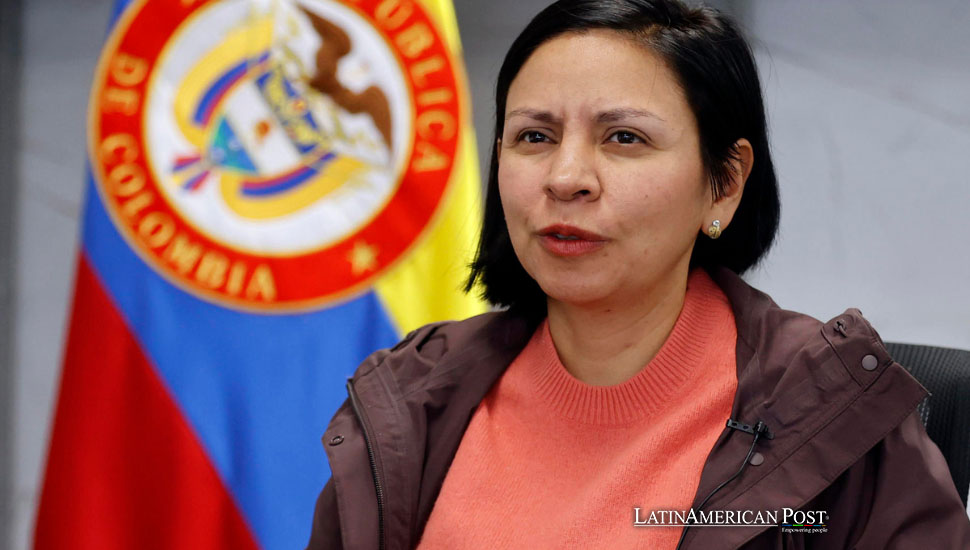Colombian Government Reports Huge Losses in Victim Fund 2018-2020

Colombia’s government disclosed a massive loss of over 4.2 billion pesos in the victims’ compensation fund, revealing potential corruption that undermines the restitution for over nine million registered victims, spotlighting a need for systemic reform and transparency.
In a troubling revelation, Colombia’s government announced that an audit uncovered losses exceeding 4.2 billion pesos (approximately 1.1 million USD) from its fund dedicated to compensating victims of conflict, casting a shadow over the nation’s commitment to justice and restitution. This financial discrepancy, affecting the indemnifications for over nine million registered victims, signifies a deeper malaise in the system, echoing issues prevalent across Latin American nations grappling with the legacy of conflict and corruption.
Mismanagement Under Previous Administration Exposed
Patricia Tobón, the director of the Unit for Victims, reported these findings, attributing the losses to possible irregularities during the previous administration under President Iván Duque (2018-2020). The audit, prompted by the Transparency Office of the Republic’s Presidency, revealed that the mishandling of assets, including rental properties and the sale of goods meant for victim compensation, led to this substantial financial deficit.
This scandal surfaces as Colombia commemorates its National Day for Victims, underscoring the irony and tragedy of the situation. The Colombian government is now under intense scrutiny, with calls for stringent measures to eradicate corruption within the Unit for Victims, an entity that Vice President and Minister of Equality Francia Márquez criticized for becoming a “political stronghold” under prior administrations.
Márquez highlighted the disturbing findings that the perpetrators themselves controlled assets intended for victim reparations. This situation exposes the corruption within the system and the profound challenges in restoring dignity and justice to the victims.
Echoes of Corruption Across Latin America
The audit’s revelations are part of a broader pattern in various Latin American countries, where funds and resources for social reparations and post-conflict reconstruction are often siphoned off through corrupt practices. The Colombian scenario reflects systemic issues faced by nations like Guatemala, El Salvador, and Peru, where historical conflicts have left deep societal scars, and efforts toward reconciliation and restitution are frequently compromised by corruption and mismanagement.
The Unit for Victims’ response to this crisis includes initiatives to rectify these failings and prevent further financial damage. Tobón mentioned recovering approximately 1.970 billion pesos through formalizing banking resources and eliminating unnecessary procedures. This step, albeit a partial recovery, signifies a move towards rectifying the misdeeds and ensuring that reparations reach the rightful beneficiaries.
Colombian legal authorities, such as the Attorney General’s Office and the Procuraduría, are now responsible for investigating these discrepancies thoroughly. They must determine the extent of the corruption within the victim’s fund and hold those accountable for misappropriating assets for the country’s most vulnerable populations.
Colombia’s predicament serves as a cautionary tale for Latin America, illustrating the perils of corruption and the need for robust mechanisms to safeguard resources intended for victim compensation and social restoration. It highlights the critical importance of transparency, accountability, and systemic reform to uphold the principles of justice and equity, particularly in post-conflict settings.
Demand for National Attention and Regional Cooperation
The situation demands national attention and regional cooperation to address the endemic corruption that undermines social justice initiatives. With their shared histories of conflict and corruption, Latin American countries must collaborate to develop strategies that prevent the exploitation of funds designated for the healing and rebuilding of nations.
Also read: Colombian Senate Committee Rejects Petro’s Health Reform
Colombia’s victim fund scandal is a stark reminder of the challenges faced in ensuring justice and reparations for millions of victims. It calls for a concerted effort to reform the systems of governance and oversight, ensuring that past misdeeds do not continue to haunt the present and future. As Colombia works to navigate this crisis, the lesson is clear for the region: integrity and vigilance in public administration are paramount to sustaining democracy and fostering a just society in the aftermath of conflict.





